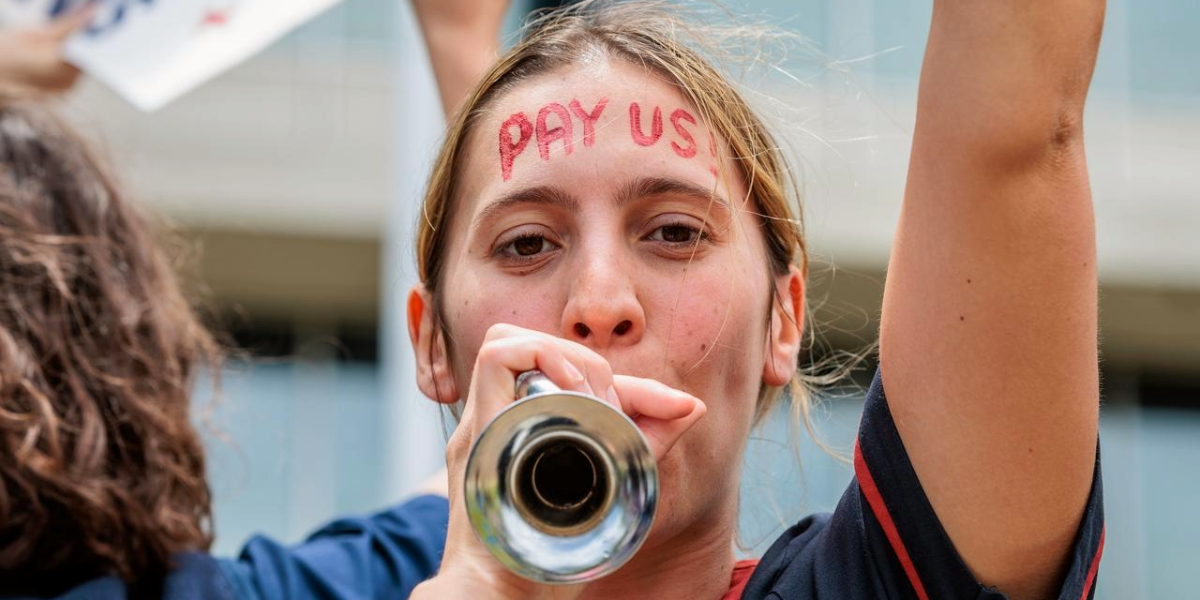A widescale nurses’ strike has triggered warnings to keep ambulances and EDs clear of minor cases as Labor feels heat for “refusing” to fix a gender pay gap.
Nurses and midwives were expected to walk off the job across NSW for 12 hours on Tuesday after demands for a 15-per-cent pay rise this year were rebuffed.
NSW Health, which had begun contacting patients about postponing surgeries, challenged the strike in the state’s industrial relations commission on Monday, emerging victorious late in the afternoon.
The commission had ordered the NSW Nurses and Midwives’ Association to cease the strike action immediately.
In the face of official orders to halt their strike, a large rally in Tamworth is one of 16 planned for today.
Life-preserving staffing will be maintained but longer waits in emergency departments and planned surgery cancellations are expected.
Health Minister Ryan Park pointed the community to Healthdirect, urgent care services and telehealth GP clinics.
“We remind the community of alternative options already available to them for less urgent minor conditions and keep emergency departments and ambulances for saving lives,” he said.
Concerns over the health impact prompted the state’s industrial relations commission on Monday afternoon to order the union cease its scheduled action.
But the undeterred union said members were not taking industrial action lightly.
“They strive to provide compassionate, high-quality care to our patients every day, but the NSW government’s refusal to value us and put a decent offer on the table has left us with no choice,” NSW Nurses and Midwives’ Association general secretary Shaye Candish said.
The union also isn’t happy that provisions for extra funding – for several health-focused promises powering Labor’s 2023 election win – can’t extend to wages.
Labor was “refusing to fix the gender pay gap” and deliver the state’s largest female-dominated workforce fair and reasonable pay, Ms Candish said.
Three in four NSW public health workers are women, with median salaries 3.2 per cent below their male counterparts.
While dismissed by the premier as unaffordable, an immediate 15-per-cent pay rise could be covered through capturing $3 billion in lost commonwealth health funding, the union says.
Opposition leader Mark Speakman said it was shocking a government “claiming to care about essential workers” could let it get to this point.
The strikes come as Labor juggles multiple battles with industrial unions over pay, having convinced most in 2023 into a snap, one-year deal for a four-per-cent wage rise.
Rail workers are also threatening to derail plans to bring driverless trains to Sydney’s south. The rail union on Monday formally applied to begin work bans on September 18 unless rail fares were reduced to 50 cents per trip.
Meanwhile, industrial action by Electrical Trades Union workers is causing weeks of delays and cost impacts on the Gunnedah Regional Saleyards Redevelopment Project.
Gunnedah Shire Council Director Planning and Environmental Services Andrew Johns said the Electrical Trades Union’s decision to stage industrial action within Essential Energy has impacted subcontractor and machinery availability and cost the Saleyards project in the order of $12,000 in abortive costs so far.
“Industrial action will not only mean significant additional unnecessary costs, but it will also lead to delays in occupation of the new Saleyards facility,” Mr Johns said.
“Electrical work at the Saleyards as part of the Highway intersection works requires a whole lot of ancillary arrangements, including traffic control and the support of other skilled professionals. Each delay means all of those arrangements have to be rescheduled at extremely short notice, and all of this adds to the project cost.”
Don’t miss any of the important stories from around the region. Subscribe to our email list.

